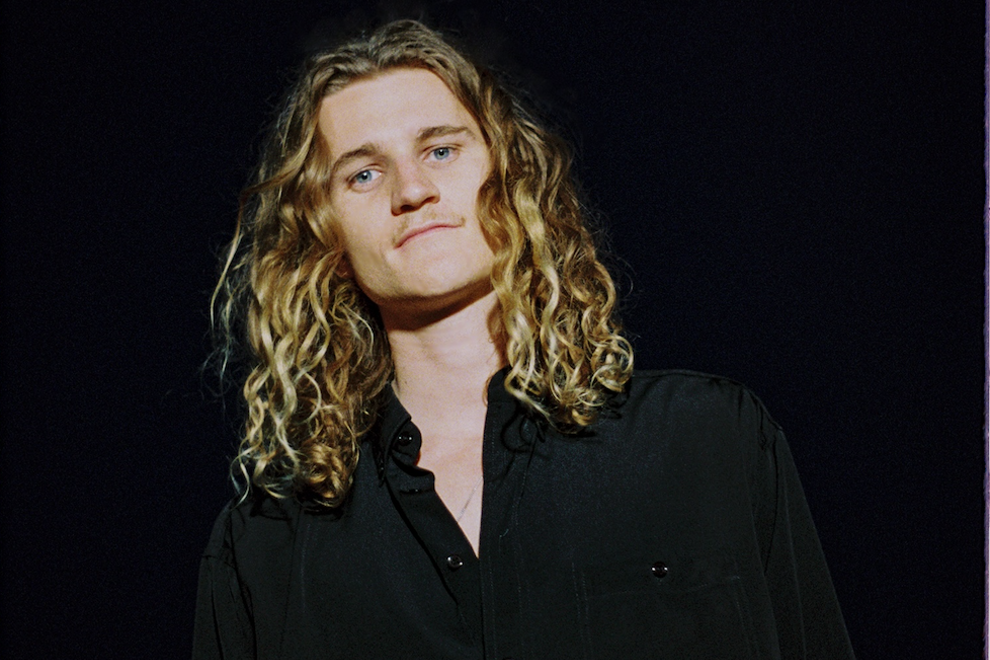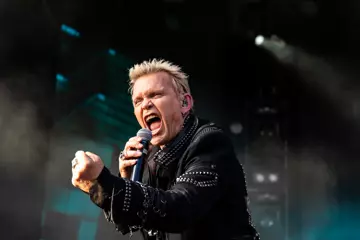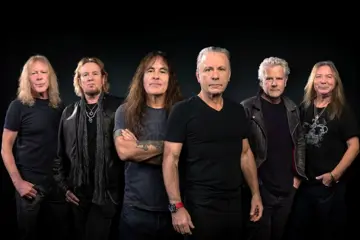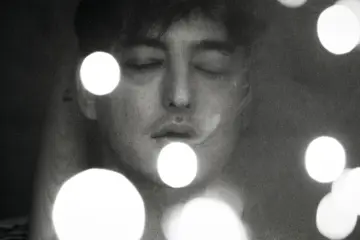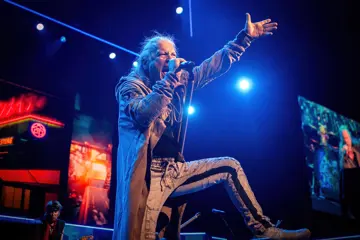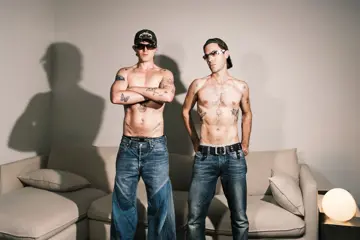What is music, really?
Sure, at a base level, it’s just sound, frequency—patterns of rhythms, chords and melodies.
But what does that mean, for us as listeners? As interpreters, as beings that interact with this noise and interface with it through our own lenses of experience and meaning.
What does it mean for us as creators? As artists, as the ones who channel that experience and meaning, and give life to music of our own.
And what is music’s role in the lives and well-being of our youth? How significant is it in helping to aid positive mental health in young people, and assisting in regulating their response to emotional hardships?
In short, very significant - especially in building a sense of belonging and community.
And in many ways, music’s meaning to both listener and creator is much the same.
Firstly, music is connection.
I’ve been deeply connected to music for as long as I can remember. In my early youth, music was always fun. It was singing in the car to the Play School soundtrack. It was dancing in the lounge room while my dad played songs by The Angels on guitar. It was waking up with a smile as my mum sang You Are My Sunshine while opening the blinds.
It always connected me to this pure essence of being human, to the spirit of being alive. Then to my first performance singing the Jackson 5’s’ ABC as an eight-year-old at my primary school. It was a big production across all years, that we’d practiced together consistently for months. I was surrounded by dancers, instrumentalists and backup singers - all clapping out of time - but having the time of our lives. I remember the feeling after that night. It was like a bolt of lightning. The pinnacle of my young life, and I never wanted to do anything else. As I got older, music (and writing specifically) became something that didn’t just amplify positivity but became a blueprint for processing negative emotions too.
Don't miss a beat with our FREE daily newsletter
Few things in life connect people in such a way. We have sports, where millions switch on the TV, or thousands pack into stadiums to watch a tiny ball be passed or kicked or hit from side to side, clinging to its every move.
But what can often be heard at major sporting events? A pregame musical performance, a stadium singing in unison to support their team, the sounds of a team song being blasted on the speakers after a triumphant win. Why is this? Do sports ever break out at concerts or music events?
Similarly, music finds its way into other forms of connection and “entertainment”, that without such would be far less impactful… movies and TV shows for example. Live stage performances like plays are often accompanied by orchestras- or further yet, are performed as Musicals or Operas. Music is even a fundamental pillar in deeper social identifiers, such as religion in the form of hymns or chants, or nationalism in the form of anthems.
There’s an innate humanity here. Something about music is, if you’ll permit me to say - on its own wavelength.
As a creator of music, initially, it connects us to ourselves. To express our own emotions in a way that simply words cannot. It connects us to a true sense of self and becomes a manifestation of how we perceive the world- if even for a moment. It connects us to our musical influences, whose styles or genres we walk in the footsteps of. And finally, there’s liberation and connection in the act of sharing this truth and being heard.
How does this meaning differ for a listener? Well, I believe that when you listen to a song or a piece of music, you are engaging with the ever-evolving creation of that piece. These sounds, these ideas, they continue to permeate and grow with every ear they fall upon. How often do fans have completely different connections and relationships with the exact same song? Much like the songwriter, music connects the listener to themselves. To graduating school, to that Summer holiday, to the loss of a family member, to the birth of a child. It connects us to our past, through sounds or lyrics that evoke old feelings or memories. It connects us to our future, symbiotically growing alongside us as we move and change into the people we are yet to be. Music becomes deeply and personally internalised as the soundtrack to everything from our day-to-day activities to our innermost emotions.
Further, the moment someone hums along with a melody sings a verse in the shower, or even belts out a chorus at a concert–they are now the creator. They are the one producing the frequency, giving life to the song. In a very real sense, they are now making the music.
Finally to this point, and maybe most obviously, music connects us to each other. As different as each life to the next may be, music has the ability to cut to the very core of what it means to be human and unifies people in this.
To feel, to ponder, to share and tell stories. To celebrate, to mourn. Nothing does this like music.
There’s something spiritual about being at a concert when everyone in the crowd is singing the same thing. When thousands of people can feel like one big organism, all locked into the purity of a moment and a feeling.
What does it mean for people to be unified in these feelings, and how is this relevant to the mental health of our youth?
It means community. It means belonging. To not just feel heard, but to be surrounded by brothers and sisters who resonate with something also.
We evolved to be centred in community. To feel seen and have worth in belonging to something bigger than ourselves. From my experience, having a clear sense of self-worth is a huge step towards being mentally stable and strong.
I’ve been involved with a charity called Musicians Making a Difference (MMAD) for over 10 years. MMAD seeks to change young lives through the power of music, through running weekly music mentoring workshops across Australia- with a primary base on the Central Coast. I found MMAD as a 12-year-old when I was busking at a community event where MMAD had a stall. Immediately I started attending the programs and was quickly confronted with an immense perspective shift. Kids from my age up to 24 years old were dealing with homelessness, drug abuse, domestic violence… things kids shouldn’t have to go through. I quickly saw the power of music to facilitate fundamental life changes week after week. Kids finding housing, going sober, finally feeling joy again after long struggles with depression.
What was the cause of this? Well, undoubtedly incredibly run programs and mentoring… but the music was the canvas. The spark from which to enact change.
When I was 14, my little brother Banjo (like the musical instrument) passed unexpectedly. Banj played the drums and loved to sing as well–often early blues songs with some surprising old soul gravel for a 10-year-old.
I remember the day I first wrote a song about his passing. I knew that it was something I needed to do for myself, and I felt like I wanted to for him also. I’d put it off for a while, avoiding the waves of emotion to come. When I finally wrote it almost 2 months later, those waves did come. But they flowed from within me, to music and lyrics, and then out of me through my voice and hands on the guitar. Those waves were somehow not quite as heavy. I’d released some of the poison, some of the pain, and given new life to something I was proud of. That song was called Infinite Child and was about how I will always feel his presence around me.
This transformation is something I’ve seen at MMAD over, and over again. The creative process aiding to beautifully alleviate pressures that otherwise would’ve remained unspoken. Since being a participant of MMAD, I volunteered and performed as an ambassador for a number of years–and then became one of the mentors myself and have run programs for the last 5 years. In our home base in Gosford, we have a recording studio space, big live room often used for writing and jamming, and even a stage set up with live PA.
We start sessions with a jam. Everyone sits in a circle as we play and sing songs together that inspire and uplift us. This can be extremely powerful, as the kids will often share freestyle raps or verses they’ve written that week. Next, we discuss a motivational focus. Each week changes–ranging from what we call “Setting The Culture”, about being intentional on creating an environment around them that aligns with their goals, to “Out of your Element”, where kids are encouraged to explore new forms of musical expression or have the confidence to branch out in their personal lives.
Then, we facilitate the creation of new music–often around the focus of the week. There is serious growth and magic that happens here. It’s a time for our participants to write about things they’re trying to break free from. A time to write music about their goals and what they’re striving towards. A time to simply process and channel hardship into something beautiful. It’s a positive outlet. And if kids don’t have positive outlets, they’ll find negative ones. It’s my opinion that when you understand and have seen this psychology firsthand, music and outlets for positive self-expression should have a much stronger focus in schools - as currently less than 50% of NSW primary schools even have music education.
Once written, MMAD has the resources to be able to record the music, and then empower them to perform it on stage also. This massively strengthens self-worth and makes people feel like their uniqueness is special. That it’s celebrated and appreciated by a community they truly belong to.
I’ve spoken to the power of music’s creative process for youth and their sense of belonging. But what about purely as listeners?
Growing up in 2024 is in many ways harder than it’s ever been- particularly as social media continues to be an almost inseparable force.
The teenage years are so critical to one’s development, and a time when people are trying to find where they fit in, but also how they stand out. Where’s their tribe, and how are they unique in it? Music is of very strong importance here. It’s an identifier. It becomes part of people- intertwined with how they see themselves. It’s part of our self-discovery. Finding music that connects and speaks to you, finding community in others who feel the same. Wearing that artist’s merch like “this is who I am”. It’s as personal as a fingerprint. We all have them, and this one is mine.
Whilst social media makes this process, in my view, much more complicated; it proves music’s importance in the process. Music plays an integral role in the way that young people interact with these changing mediums. They add music to posts and videos to create a more unique representation of what they’re sharing. They make edits, fan pages. They follow their favourite artists and festivals and stay up to date with gigs coming up. They film videos to share their own music with their community and followers.
The paradox is that at the heart of almost all mental health struggles, is either a lack of a positive sense of self or a lack of belonging to a safe and supportive community. Music works magic in both.
Music doesn’t just change lives, it makes them. Yes, it’s just sound, frequency. You can’t hold it or see it or smell it. But it’s like love in that way. A universal connector that encompasses all that it means to be human. And if there’s one thing that’s of benefit to youth mental health, it’s connection.
Fletcher Kent released his debut song I’ll Be on November 15. Listen to the track below.
This piece of content has been assisted by the Australian Government through Music Australia and Creative Australia, its arts funding and advisory body


